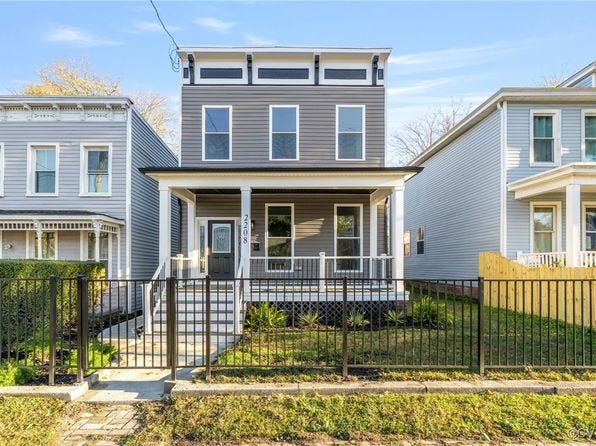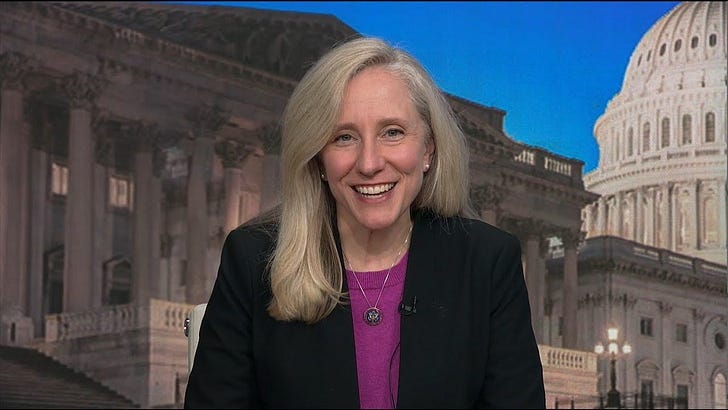Op-ed: Slipping homeownership opportunity is the issue of our time
The Richmond region has a serious housing problem, Flores writes.
This is the Virginia Scope daily newsletter covering Virginia politics from top to bottom. Please consider becoming the ultimate political insider by supporting non-partisan, independent news and becoming a paid subscriber to this newsletter today.
Have a tip? You can reply to this email or reach out to me directly at Brandon@virginiascope.com.
Today’s Sponsor: Fast Democracy
You're keeping up with legislation. Is your bill tracking software keeping up with you? FastDemocracy is the most cutting-edge bill tracking software in Virginia, used by leading lobby firms, nonprofits, and businesses across the state.
Spend less time tracking bills and more time effectively advocating for your cause.
Instant Alerts: Get lightning-fast bill alerts on your issues, giving you the competitive edge.
NEW! Auto-Reporting: fully automate your bill and hearing reports and save hours of work each week
Seamless team collaboration, regulatory tracking, campaign tools, mobile app, bill sharing and more
Ready to learn why so many of your colleagues have switched to FastDemocracy? Email nicole@fastdemocracy.com to get a demo and save $100 when you use the promo code VASCOPE.
Slipping homeownership opportunity is the issue of our time
by Casey Flores
Casey Flores is a Richmond resident, the president of the Log Cabin Republicans of Richmond and a member of Richmond’s Yes in My Back Yard (YIMBY) chapter.
A recently posted graph from realtor.com visually defined the top projected housing markets in America for 2025. Richmond ranked fifth on the list. While its ranking, based on forecasted price increases, was a sign of good things to come for realtors and current homeowners, it meant devastation for future generations hoping to build wealth.
The Problem
The Richmond region has a serious housing problem. According to Redfin, in November 2019 the median sale price for a home was $250,000. In November 2024, it was $440,250, which was a 25% year-over-year increase. The prospect of home ownership—the primary ladder to financial stability and generational wealth—is becoming less and less accessible to millennials, Gen Z and future generations.
Hedge Funds’ Role
Senator Glen Sturtevant’s (R-Chesterfield) proposal to ban Wall Street from buying houses and renting them back is one possible solution. John Burns Research & Consulting says around 4,300 single-family homes in the Richmond metro are owned by permanent capital. That’s 4,300 homes that could have been owner-occupied by individuals or families taken off the market by companies with trillions of dollars in assets under management.
These hedge funds come in with cash and offer $10,000 or $20,000 more than a young person or couple that has saved for years, outbidding them with little effort and driving up home prices on a regional scale. They then rent them out at an inflated monthly rate.
Republicans who oppose government intervention in the private market are starting to rethink this Libertarian approach for the sake of future generations. Senator Sturtevant’s proposal—which was also floated in the U.S. Senate by Democrat Oregon Senator Jeff Merkley—should become law.
Richmond City Council should look at Senator Merkley’s bill, which requires companies that own more than 50 homes to sell their excess and hedge funds to exit the single-family home market altogether. The bill is measured because it gives companies 10 years to achieve its goal–returning housing supply to the general populous. Of note, pro-housing candidate Luther Cifers, a Republican, won his 10th district primary for State Senate in part due to a focus on housing policy, something Republicans haven’t highlighted historically. The argument that existing homeowners should be able to sell their houses for the highest price possible is a valid one, but with higher interest rates and starting price points, the issue has become unsustainable and is creating a permanent underclass rapidly. The political party that acts on this will be rewarded by voters for generations.
Zoning & Innovation
Localities can also act. The Richmond metro, but especially the city, needs to help bring more for-purchase housing to market. Much of the city’s housing stock dates to the early 1900s and while new rental units are popping up left and right, city leaders should make every effort to court single-family home and condo developers to build here. Additional measures should be taken to incentivize planned apartment complexes to offer for-sale units and convert vacant commercial buildings to for-purchase condominiums. The city should also change zoning regulations to increase density by right and streamline the approval and construction process for developers. Innovative construction solutions such as 3D-printing or “tiny house” neighborhoods are other possibilities.
Incoming mayor Danny Avula pledged to increase housing supply of all types, including for-purchase. It should be a top priority of his office if Richmond wants to remain competitive with other cities, particularly those in the much-more-affordable Midwest.
We have an amazing place to live here. Future generations need to have an ownership stake in it if we want to keep it amazing.
Spanberger's outgoing message
This is the Virginia Scope daily newsletter covering Virginia politics from top to bottom. Please consider becoming the ultimate political insider by supporting non-partisan, independent news and becoming a paid subscriber to this newsletter today.






